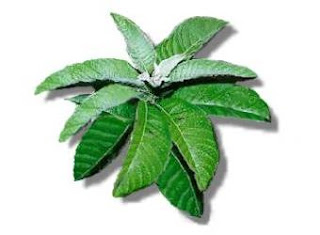Sambong (Blumea balsamifera L.)
Sambong (scientific name: Blumea balsamifera) is an amazing medicinal plant. Coming from the family of Compositae, it goes by several names locally. It is known in the Visayas as bukadkad and as subsob in Ilocos. The plant is a strongly aromatic herb that grows tall and erect. Its height ranges from 1.5 to 3 meters, with stems that grow for up to 2.5 centimeters. It is an anti-urolithiasis and work as a diuretic. It is used to aid the treatment of kidney disorders. The Sambong leaves can also be used to treat colds and mild hypertension. Since it is a diuretic, this herbal medicine helps dispose of excess water and sodium (salt) in the body.
Sambong is one herbal medicine (of ten) approved by the Philippine Department of Health (DOH) as an alternative medicine in treating particular disorders. This plant possesses a multitude of properties that make it worthy of the DOH approval. It functions as an astringent and as an expectorant, and has been found to be anti-diarrhea and anti-spasm. As an astringent, preparations made of sambong leaves may be used for wounds and cuts. It is also suggested to be incorporated to post-partum baths, as well as considerable immersion of particular body areas that are afflicted with pains caused by rheumatism. Its expectorant properties make it as a popular recommendation to be taken in as tea to treat colds.
Powdered Sambong leaves are available in 250 mg tablets at the DOH's Philippine Institute of Traditional and Alternative Health Care (PITAHC) Telephone # (632) 727-6199.
Health Benefits of Sambong:
• Good as a diuretic agent
• Effective in the dissolving kidney stones• Aids in treating hypertension & rheumatism
• Treatment of colds & fever
• Anti-diarrheic properties
• Anti-gastralgic properties
• Helps remove worms, boils
• Relief of stomach pains
• Treats dysentery, sore throat
Preparation & Uses:
• A decoction (boil in water) of Sambong leaves as like tea and drink a glass 3 or 4 times a day.
• The leaves can also be crushed or pounded and mixed with coconut oil.
• For headaches, apply crushed and pounded leaves on forehead and temples.
• Decoction of leaves is used as sponge bath.
• Decoction of the roots, on the other hand, is to be taken in as cure for fever.
